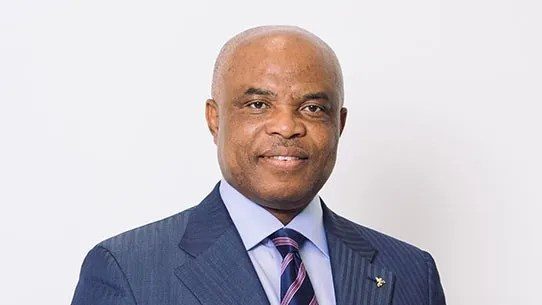
Lagos State Governor, Babajide Sanwo-Olu, has called on residents to take collective responsibility for ending plastic pollution, declaring that Lagos must be defined not by pollution but by innovation, responsibility, and decisive action toward a zero-plastic waste future.
The governor made the appeal through his Special Adviser on Environment and Water Resources, Olakunle Rotimi-Akodu, during the 19th Annual Walk for Nature held over the weekend at the Yaba College of Technology, Lagos.
Speaking on the theme, “Lagos, Let’s Beat Plastic Pollution,” Sanwo-Olu described the topic as timely and critical, emphasizing that unchecked plastic waste has become one of the most pressing environmental challenges of the era.
He noted that tackling plastic pollution is key to achieving a cleaner, healthier, and more resilient Lagos, adding that the initiative aligns with the administration’s T.H.E.M.E.S Plus Agenda, which prioritizes environmental sustainability and inclusive growth.
“Across the world, plastic pollution has become a silent crisis-clogging our drains, polluting our waterways, threatening marine life, and endangering our collective pursuit of a sustainable future,” the governor said.
He revealed that Nigeria produces about 2.5 million tonnes of plastic waste annually, with Lagos contributing roughly 870,000 tonnes, of which less than 12 percent is recycled.
He stressed that plastics block drainage channels, worsen flooding, harm aquatic ecosystems, and pose severe health hazards to humans.
Sanwo-Olu emphasized that the solution lies in collective responsibility, behavioural change, and active environmental stewardship, urging Lagosians to take individual and community-level actions toward reducing plastic use.
“As a coastal megacity, Lagos must continue to lead efforts in reversing this dangerous trend and set a global example in sustainable waste management,” he stated.
He recalled that earlier in the year, the state government began enforcing the ban on single-use plastics and Styrofoam containers to curb littering and drainage blockages.
He added that the Lagos State Waste Management Authority, LAWMA, had strengthened waste collection and recycling systems while expanding the Blue Box Programme for waste separation at the point of generation.
According to him, the state has also expanded waste-to-wealth initiatives to convert recyclables into viable economic opportunities and increased investment in recycling infrastructure, public awareness campaigns, and community clean-up exercises across all local government areas.
Sanwo-Olu noted that the Cleaner Lagos Initiative continues to empower waste managers, improve landfill operations, and enhance public-private partnerships in waste recovery and recycling.
He disclosed that the State Environmental Marshals are now better equipped to enforce sanitation laws, with stricter penalties for indiscriminate dumping of refuse.
Beyond enforcement, he said, the government is collaborating with innovators to develop sustainable alternatives to single-use plastics and to strengthen environmental education through schools and community outreach programmes.
However, the governor maintained that government effort alone cannot solve the problem, urging residents to adopt the 8Rs of sustainable living-Reduce, Reuse, Recycle, Rethink, Repair, Re-gift, Recover, and Refuse.
Sanwo-Olu commended the Nigerian Conservation Foundation, NCF, for its partnership with the Lagos State Government in promoting environmental awareness and sustainability.
He described the Walk for Nature as a symbol of unity and shared purpose, representing the growing movement toward responsible consumption, circular economy practices, and environmental preservation.
Sanwo-Olu calls for collective action to end plastic pollution in Lagos


